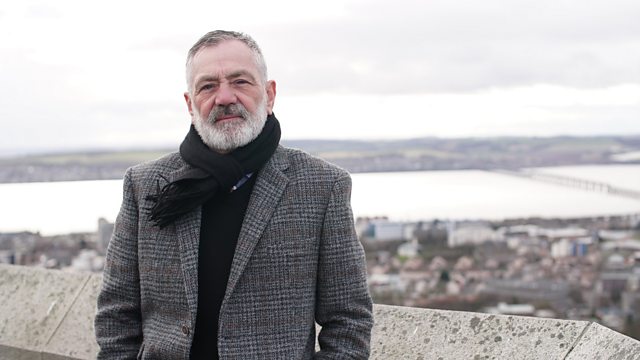Child Psychopaths
Criminologist David Wilson presents fresh analysis of notorious killers Angus Sinclair and Robbie McIntosh. What could cause these men, then teenagers, to commit violent murders?
Professor David Wilson, the UK’s leading criminologist, presents the second series of the crime talk show Crime Files. In this episode, he and his guests discuss the complex issue of children who kill. How do you punish children when they may not comprehend the gravity of the act? Are these the actions of a burgeoning psychopath?
Investigative journalist Fiona Walker takes on the case of Angus Sinclair, examining his first-ever killing at the age of 16, and how that murder resulted in Angus spending only seven years in prison for the death of young Catherine Reehill. Unfortunately, after his release he would go on to kill other women.
Menawhile, David heads to Dundee to investigate the callous young killer Robbie McIntosh, who randomly stabbed a woman who had been out walking her dog on Dundee Law. Again, this killer was released and went on to commit a further act of violence.
In the studio, David and Fiona dissect both cases, questioning whether there should be harsher sentences for children showing signs of psychopathy. They have also uncovered psychiatric reports on both Sinclair and McIntosh, detailing their behaviours during the times of the murders and while in prison.
David’s next guest is renowned psychologist Dr John Marshall. He speaks with David about his current work with children, especially those showing signs of psychopathy, explaining what the early warning signs might be for young children and what hope there is if caught early. He also speaks about the warning signs surrounding Angus Sinclair and Robbie McIntosh, and why small, often unnoticed signs may be the biggest indicators.
David’s final interview guest is Scottish crime fiction author Douglas Skelton, creator of the hugely popular Davie McCall novels. Douglas started his career in true-crime writing and so has come face to face with real-life killers and psychopaths, which helped with the authenticity of his fictional work. He talks about writing in the frame of mind of a psychopath and how the experience can be very freeing, especially when your character can act without needing a motive. Finally, we ask the big question: have crime writers glamourized the psychopath too much? Is there a danger to writing crime fiction?
Last on
More episodes
Previous
Next
Credits
| Role | Contributor |
|---|---|
| Presenter | David Wilson |
| Presenter | Fiona Walker |
| Executive Producer | Harry Bell |
Broadcasts
- Sun 5 Sep 2021 22:30
- Wed 8 Sep 2021 22:30
- Wed 20 Apr 2022 23:30
- Tue 20 Jun 2023 23:00

